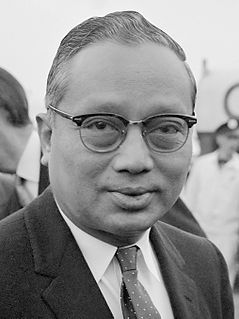A Quote by Nikola Tesla
All knowledge or form conception is evoked through the medium of the eye, either in response to disturbances directly received on the retina or to their fainter secondary effects and reverberations. Other sense organs can only call forth feelings which have no reality of existence and of which no conception can be formed.
Related Quotes
The real, then, is that which, sooner or later, information and reasoning would finally result in, and which is therefore independent of the vagaries of me and you. Thus, the very origin of the conception of reality shows that this conception essentially involves the notion of a COMMUNITY, without definite limits, and capable of a definite increase of knowledge.
Modern physics has changed nothing in the great classical disciplines of, for instance, mechanics, optics, and heat. Only the conception of hitherto unexplored regions, formed prematurely from a knowledge of only certain parts of the world, has undergone a decisive transformation. This conception, however, is always decisive for the future course of research.
Mankind occurs as male or female, as something or nothing. Woman has no share in ontological reality, no relation to the thing-in-itself, which, in the deepest interpretation, is the absolute, is God. Man in his highest form, the genius, has such a relation, and for him the absolute is either the conception of the highest worth of existence, in which case he is a philosopher; or it is the wonderful fairyland of dreams, the kingdom of absolute beauty, and then he is an artist.
The conception that government should be guided by majority opinion makes sense only if that opinion is independent of government. The ideal of democracy rests on the belief that the view which will direct government emerges from an independent and spontaneous process. It requires, therefore, the existence of a large sphere independent of majority control in which the opinions of the individuals are formed.
Common to all these types is the anthropomorphic character of their conception of God. In general, only individuals of exceptional endowments, and exceptionally high-minded communities, rise to any considerable extent above this level. But there is a third stage of religious experience which belongs to all of them, even though it is rarely found in a pure form: I shall call it cosmic religious feeling. It is very difficult to elucidate this feeling to anyone who is entirely without it, especially as there is no anthropomorphic conception of God corresponding to it.
For many ages it has been allowed by sensible men, Nihil est in intellectu quod non fuit prius in sensu: That is, There is nothing in the understanding which was not first perceived by some of the senses. All the knowledge which we naturally have is originally derived from our senses. And therefore those who want any sense cannot have the least knowledge or idea of the objects of that sense; as they that never had sight have not the least knowledge or conception of light or colours.
This organic conception of society, the only vital conception, combines a noble humanism with the genuine Christian spirit, and it bears the inscription from Holy Writ which St. Thomas has explained: "The work of justice shall be peace"; a text applicable to the life of a people whether it be considered in itself or in its relations with other nations.
I do not deny God, because that word conveys to me no idea, and I cannot deny that which presents to me no distinct affirmation, and of which the would-be affirmer has no conception. I cannot war with a nonentity. If, however, God is affirmed to represent an existence which is distinct from the existence of which I am a mode, and which it is alleged is not the noumenon of which the word I represents only a speciality of phenomena, then I deny God, and affirm that it is impossible God can be.
The world of physics is essentially the real world construed by mathematical abstractions, and the world of sense is the real world construed by the abstractions which the sense-organs immediately furnish. To suppose that the "material mode" is a primitive and groping attempt at physical conception is a fatal error in epistemology.




































